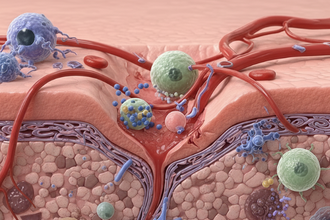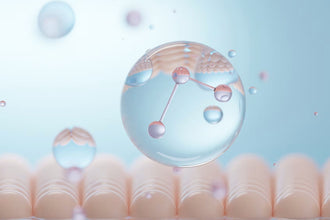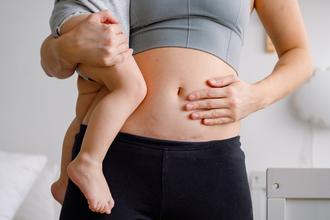
Mommy Makeover Recovery: Supplements and Diet Essentials
A comprehensive nutritional support plan is essential for optimal healing after a mommy makeover, combining specific mommy makeover recovery supplements, vitamins, and dietary strategies to reduce inflammation, support tissue repair, and minimize complications during recovery.
Essential Vitamins and Supplements for Post-Surgery Recovery

| Supplement Type | Primary Function | Optimal Timing | Special Considerations |
|---|---|---|---|
| Vitamin C | Collagen synthesis support | Before and after surgery | Take with meals |
| Vitamin A | Tissue repair enhancement | Pre-surgery only | Discontinue post-surgery |
| Bromelain | Inflammation reduction | Throughout recovery | Empty stomach required |
| Zinc | Wound healing support | Recovery phase | Monitor dosage carefully |
| Probiotics | Gut health maintenance | After antibiotics | Choose multiple strains |
| Arnica | Bruise reduction | Before and after | External use preferred |
The foundation of mommy makeover recovery nutrition includes key vitamins and supplements that support wound healing, reduce inflammation, and boost immune function. These supplements should be started at least two weeks before surgery and continued throughout the recovery period, under physician guidance.
Vitamin C
- Recommended dose: 1,000-2,000mg daily
- Supports collagen production and wound healing
- Strengthens blood vessels and reduces bruising
- Best taken with meals to improve absorption
Vitamin A
- Recommended dose: 10,000-25,000 IU daily
- Promotes proper wound healing and skin repair
- Supports immune system function
- Should be discontinued 2-3 weeks post-surgery
Bromelain
- Recommended dose: 500-1000mg daily
- Reduces swelling and inflammation
- Can help minimize bruising
- Take on an empty stomach for best results
Arnica Montana
- Available in oral and topical forms
- Helps reduce bruising and swelling
- Start 2-3 days before surgery
- Continue for 1-2 weeks post-surgery
Protein Requirements During Recovery

| Protein Source | Digestibility | Recovery Benefits | Best Usage Time |
|---|---|---|---|
| Whey Protein | Highly digestible | Fast absorption | Immediate post-surgery |
| Plant Proteins | Moderate digestibility | Gentle on system | Throughout recovery |
| Collagen Peptides | Easily absorbed | Tissue support | Early healing phase |
| Bone Broth | Very digestible | Mineral rich | First week recovery |
| Essential Amino Acids | Rapid absorption | Targeted support | Pre and post surgery |
| Complete Protein Foods | Varied absorption | Sustained nutrition | Later recovery phase |
Adequate protein intake is crucial for optimal healing after a mommy makeover, with patients needing approximately 1.5-2.0 grams of protein per kilogram of body weight daily during recovery.
Protein Sources
- Lean meats (chicken, turkey, fish)
- Eggs and egg whites
- Greek yogurt and cottage cheese
- Plant-based options (legumes, quinoa)
- High-quality protein supplements
Protein Supplementation Guidelines
- Choose medical-grade protein powders
- Aim for 20-30g protein per serving
- Space intake throughout the day
- Include leucine-rich sources for optimal healing
Hydration and Electrolyte Balance

Proper hydration is essential for recovery, affecting everything from wound healing to preventing complications. Patients should consume 2-3 liters of fluid daily during recovery.
Hydration Sources
- Water (primary source)
- Herbal teas
- Clear broths
- Electrolyte drinks (sugar-free)
- Water-rich fruits and vegetables
Anti-inflammatory Foods and Supplements
Incorporating anti-inflammatory nutrients can significantly reduce swelling and discomfort during recovery while supporting the healing process.
Key Anti-inflammatory Components
- Omega-3 fatty acids (2-4g daily)
- Turmeric/curcumin supplements
- Green tea extract
- Quercetin-rich foods
- Resveratrol supplements
Digestive Support Supplements

Surgery and post-operative medications can impact digestive health, making specific supplements important for maintaining comfort and nutrient absorption. What supplements should I take after surgery varies by individual, but probiotics are often recommended.
Recommended Digestive Aids
- Probiotics (20-50 billion CFU daily)
- Digestive enzymes with meals
- Fiber supplements (start slowly)
- Magnesium citrate for regularity
- Ginger supplements for nausea
Timing and Implementation of Nutritional Support
The success of nutritional support depends heavily on proper timing and implementation, starting well before surgery and continuing throughout recovery. Taking vitamin C before surgery is particularly important for optimal results.
Pre-Surgery Protocol (2-4 weeks before)
- Begin vitamin C and zinc supplementation
- Increase protein intake gradually
- Start hydration optimization
- Introduce anti-inflammatory supplements
- Establish regular eating patterns
Immediate Post-Surgery Phase (Days 1-7)
- Focus on easily digestible proteins
- Maintain hydration with electrolytes
- Continue core supplements as directed
- Implement liquid nutrition as needed
- Monitor for supplement tolerance
Extended Recovery Phase (Weeks 2-6)
- Return to normal eating patterns
- Maintain elevated protein intake
- Continue wound-healing supplements
- Adjust doses based on healing progress
- Monitor for deficiency symptoms
Special Considerations and Contraindications
Nutritional deficiencies can impact healing, and certain supplements that reduce swelling and inflammation require careful consideration and may be contraindicated for some patients.
Common Contraindications
- Blood-thinning supplements (garlic, ginkgo)
- High-dose vitamin E
- Fish oil (temporarily)
- Certain herbal supplements
- Weight loss supplements
Monitoring and Adjusting Nutritional Support
Regular monitoring and adjustment of nutritional support ensure optimal recovery and prevent potential complications.
Key Monitoring Parameters
- Wound healing progress
- Energy levels
- Protein intake tracking
- Hydration status
- Supplement tolerance
Long-term Nutritional Maintenance
After initial recovery, transitioning to a long-term maintenance plan helps sustain results and support overall health.
Maintenance Guidelines
- Gradual reduction in supplementation
- Focus on whole food nutrition
- Continued protein optimization
- Regular hydration maintenance
- Periodic nutritional assessment
Conclusion
Successful mommy makeover recovery requires a comprehensive nutritional approach combining targeted supplementation, proper timing, and careful monitoring. Working closely with healthcare providers to customize this approach ensures optimal healing and long-term results.
Frequently Asked Questions
How soon after a mommy makeover can I start taking supplements?
Begin most supplements 2-3 weeks before surgery and resume them 24-48 hours after surgery, following your surgeon's specific guidelines. Some supplements like vitamin A should be discontinued post-surgery, while others like probiotics can be started immediately after.
What happens if I miss a day of supplements during recovery?
Missing a single day won't significantly impact your recovery. Simply resume your normal supplement schedule the next day - don't try to "make up" for missed doses by taking extra supplements, as this could be counterproductive or unsafe.
Can I take all my supplements together in one dose?
Separate supplement intake throughout the day for optimal absorption. Some supplements compete for absorption (like iron and calcium), while others need to be taken on an empty stomach (like bromelain) or with food (like vitamin C).
When can I transition from supplements back to regular nutrition?
Most patients can begin reducing supplement intake around 6-8 weeks post-surgery, gradually transitioning to a balanced whole-food diet. However, maintain consultation with your healthcare provider as individual healing timelines vary.
Should my supplement routine change if I'm also breastfeeding?
Breastfeeding mothers need to be especially careful with supplementation after a mommy makeover. Certain supplements may affect milk production or pass through breast milk, so work closely with both your surgeon and lactation consultant to develop a safe supplement plan.
How do I know if my supplements are actually helping recovery?
Monitor specific recovery markers like wound healing progress, energy levels, and bruising reduction. Keep a daily log of supplement intake and recovery observations to share with your healthcare provider, who can help assess effectiveness and make necessary adjustments.
References:
Albaugh, V. L., Mukherjee, K., & Barbul, A. (2017). Proline precursors and collagen synthesis: Biochemical challenges of nutrient supplementation and wound healing. Journal of Nutrition, 147(11), 2011–2017. https://doi.org/10.3945/jn.117.256404
Hirsch, K. R., Wolfe, R. R., & Ferrando, A. A. (2021). Pre- and Post-Surgical nutrition for preservation of muscle mass, strength, and functionality following orthopedic surgery. Nutrients, 13(5), 1675. https://doi.org/10.3390/nu13051675
Zhu, A., Bao, X., & Agarwala, A. (2019). Perioperative Fluid Management in the Enhanced Recovery after Surgery (ERAS) Pathway. Clinics in Colon and Rectal Surgery, 32(02), 114–120. https://doi.org/10.1055/s-0038-1676476
General Disclaimer: All information here is for educational purposes only and is not meant to cure, heal, diagnose nor treat. This information must not be used as a replacement for medical advice, nor can the writer take any responsibility for anyone using the information instead of consulting a healthcare professional. All serious disease needs a physician.















